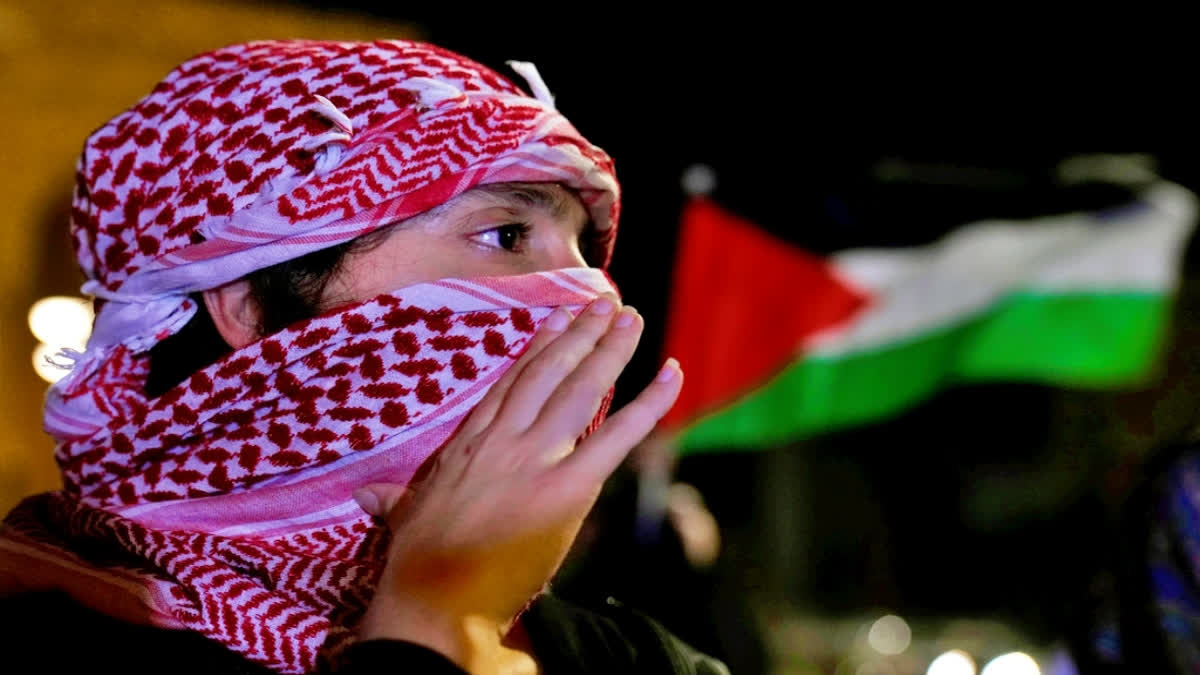New Delhi: In the heart of the enduring Israeli-Palestinian conflict, an intricate and often turbulent relationship takes centre stage. Hamas and Fatah, the two pivotal Palestinian entities, find themselves entangled in a complex web of politics, power, and ideology. With Gaza and the West Bank under their respective control, these factions not only represent divergent visions of Palestinian statehood but also a persistent challenge to unity.
Fatah is a secular nationalist organization that has historically favoured negotiations with Israel to achieve a Palestinian state. It believes in the two-state solution. In contrast, Hamas is an Islamist group that advocates armed resistance and has been involved in acts of violence against Israel. It rejects any alternative to the full and complete liberation of Palestine.
Fatah, formerly the Palestinian National Liberation Movement, is a Palestinian nationalist and social democratic political party. It is the largest faction of the confederated multi-party Palestine Liberation Organization (PLO) and the second-largest party in the Palestinian Legislative Council (PLC). Mahmoud Abbas, the President of the Palestinian Authority, is the chairman of Fatah.
The Fatah movement was founded in 1959 by members of the Palestinian diaspora, principally by professionals working in the Persian Gulf States who had studied in Cairo or Beirut and had been refugees in Gaza. The founders included Yasser Arafat, then head of the General Union of Palestinian Students (GUPS) at Cairo University, Salah Khalaf, Khalil al-Wazir, and Khaled Yashruti, then GUPS head in Beirut. Fatah espoused a Palestinian nationalist ideology in which Palestinian Arabs would be liberated by their own actions.
Hamas was founded in 1987, soon after the First Intifada (Palestinian uprising) broke out, as an offshoot of the Egyptian Muslim Brotherhood. It is a Palestinian Sunni-Islamist fundamentalist organisation, which is regarded, either in whole or in part, as a terrorist organisation by several countries and international organizations, most notably by Israel, the United States and the European Union.
Some reports, however, suggest that Israel had a hand in fostering Hamas as a counter to Fatah. An article headlined “Blowback: How Israel went from helping create Hamas to bombing it” by Mehdi Hasan, a British-American broadcaster and Dina Sayedahmed, a multimedia journalist based in New York, published in The Intercept in 2018 suggests that the creation of Hamas was largely influenced by resources provided by Israel.
“This isn’t a conspiracy theory,” the article reads. “Listen to former Israeli officials such as Brig. Gen. Yitzhak Segev, who was the Israeli military governor in Gaza in the early 1980s. Segev later told a New York Times reporter that he had helped finance the Palestinian Islamist movement as a ‘counterweight’ to the secularists and leftists of the Palestine Liberation Organisation and the Fatah party, led by Yasser Arafat (who himself referred to Hamas as ‘a creature of Israel’).
Tensions between Fatah and Hamas began to rise in 2005 after the death of Yasser Arafat in November 2004. After the legislative election on January 25, 2006, which resulted in a Hamas victory, relations were marked by sporadic factional fighting. This became more intense after the two parties repeatedly failed to reach a deal to share government power, escalating in June 2007 and resulting in Hamas’ takeover of Gaza. Prior to that, in 2005, then-Israeli Prime Minister Ariel Sharon had controversially expelled 9,480 Jewish settlers from 21 settlements in Gaza and four settlements in the northern West Bank.
Now, while Fatah heads the Palestine Authority in the West Bank and is recognised internationally, Hamas is the de facto ruler of Gaza. “When Hamas came to power in 2007, Israel’s objective was attained to some extent,” a source familiar with the issues of the region told ETV Bharat. “But what Israel did not realise is that it had created a Frankenstein of its own.”
Hamas became increasingly frustrated as it found itself to be confined only to the Gaza Strip. The failure of the Oslo Accords, a pair of agreements between Israel and the PLO that led to the creation of the Palestinian Authority tasked with the responsibility of conducting limited Palestinian self-governance over parts of the West Bank and the Gaza Strip and the international acknowledgement of the PLO as Israel’s partner in permanent-status negotiations about any remaining issues revolving around the Israeli–Palestinian conflict, also contributed to the frustration of Hamas.
Under the agreements, the Palestinian Authority must coordinate with the Israeli occupation over security and any armed resistance attacks planned against Israelis. This is seen as highly controversial and seen by some as the Palestinian Authority collaborating with the Israeli occupation. President Abbas regularly and publicly condemns any operations of armed resistance carried out by Palestinians against Israelis.
Being restricted to a narrow strip of land, Palestinians in Gaza became completely dependent on outside aid to lead life. Hamas allowed UN aid agencies to work in Gaza which opened schools and hospitals. The people of Gaza also became dependent on Israel for electricity, water supplies and other essentials.
According to the source, Hamas started facing challenges from Israel and the US who would cut off aid. It also has problems with Egypt especially over the Rafah crossing in the south. Egypt does not want Palestinians to cross over to its territory. Cairo also considers Hamas to be a clone of the Muslim Brotherhood. All this led to growing radicalism among people in Gaza and Hamas gained in popularity.
Even in the West Bank, the source explained, Hamas has got appeal among some sections of the people because of the Fatah’s failure to deliver on issues like the Oslo Accords, the Al Aqsa mosque in Jerusalem and Jewish settlements. According to Ramallah, West Bank-based activist Hazem Abu Helal, Hamas has a distinct ideology and they have people working to promote their ideas whereas Fatah uses money to secure its followers.
“Today, if you ask university students, the majority of them do not know what Fatah’s ideology is. The movement does not have clear principles,” Abu Helal was quoted as saying by Al Jazeera. Over the years, there have been various attempts at reconciliation between Fatah and Hamas to form a unified Palestinian government. These efforts have included negotiations, but they have not led to a lasting reconciliation, and both parties have at times accused each other of obstructing unity.
Overall, Hamas and Fatah have a complex and often adversarial relationship, marked by political differences, geographic separation, and occasional attempts at reconciliation. Their divergent approaches to the Israeli-Palestinian conflict have been a source of tension in Palestinian politics for many years.
Also read: Biden says Gaza hospital attack 'done by other team', not Israel


